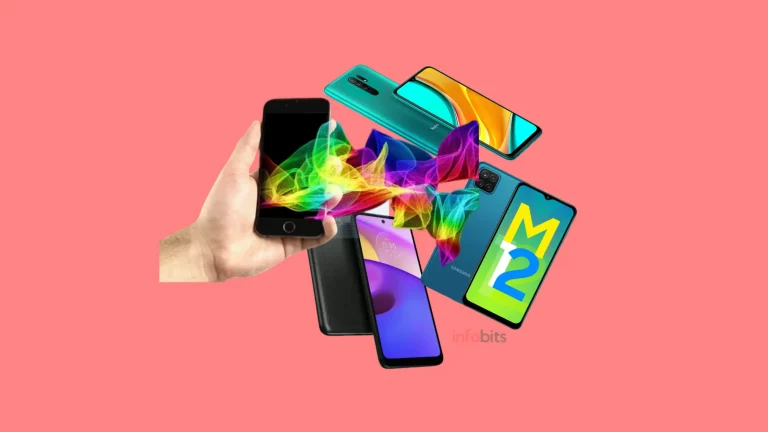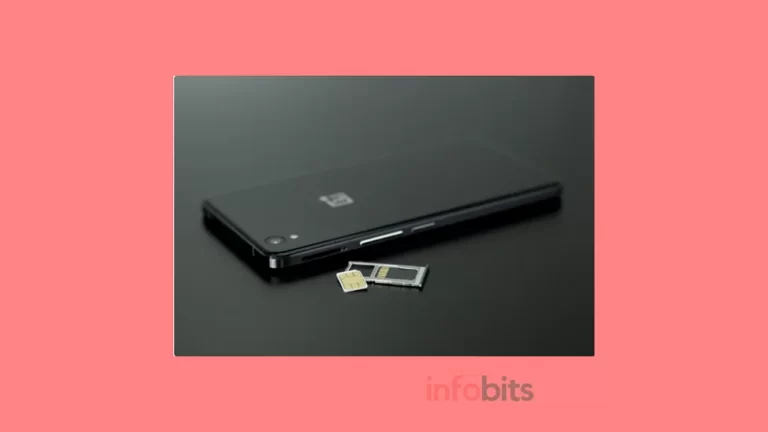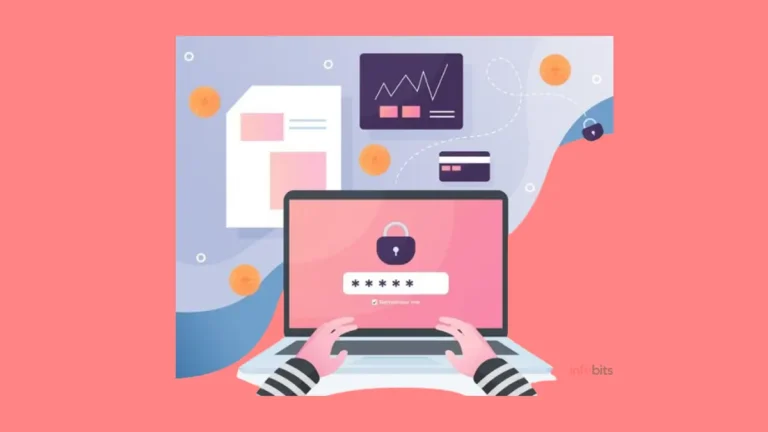The Double-Edged Sword: Investigating the Uses and Misuses of Mobile Phones!
Mobile phones have become highly involved in our daily lives, influencing our social interactions, professional practices, and personal habits.
Since their inception, they have evolved from luxury items to essential tools, with a wide range of functions that go far beyond the original purpose of voice communication.
However, their widespread existence raises concerns about their impact on society and individual well-being.
A critical examination of how we use and, at times, misuse these devices is required to navigate the complex digital landscape of the twenty-first century.
This article will look at the various roles of mobile phones, their benefits, possible disadvantages, and steps that can be taken to use their power responsibly.
Impact of Mobile Phones on Society
The introduction of mobile phones had a significant impact on society, affecting almost every aspect of our lives.
From improved communication to potential health risks and changes in productivity, the consequences are as varied as they are significant.
This section looks at how mobile phones have changed the social fabric and our daily routines.
Influence on Communication
Mobile phones have transformed how we communicate, cutting off geographical barriers and enabling instantaneous connections.
With the introduction of text messaging, social media, and video calling, these devices resulted in a new age of digital interaction.
People no longer need to be physically present to share moments; instead, they can stay connected with loved ones worldwide, share experiences in real time, and access abundant information at their fingertips.
However, this shift has raised concerns about the decline of in-person interactions and communication excellence.
As short messages and emojis become the norm, there is concern that our ability to express complex emotions and thoughts may deteriorate.
The presence of mobile phones in social contexts frequently takes away from in-person interaction, resulting in a phenomenon known as ‘phubbing’ or phone-snubbing, which can strain interpersonal relationships.
Effect on Health
While mobile phones are undeniably convenient, their constant use has raised health concerns, with studies linking excessive screen time to conditions such as eye strain, neck pain, and disrupted sleep patterns.
The blue light emitted by screens can disrupt circadian rhythms, resulting in poor sleep quality, which is critical for overall health and well-being.
Furthermore, the psychological consequences of excessive social media use, such as increased anxiety and depression, are becoming increasingly known.
There’s also the controversial topic of radiofrequency radiation, with ongoing research looking into potential links between long-term exposure and health hazards.
While current understanding suggests that radiation levels emitted by mobile phones are safe, there is a push for ongoing monitoring and research to ensure public safety, especially as technology advances and usage patterns change.
Impact on Productivity
Mobile phones can be effective productivity tools, providing on-the-go access to emails, documents, and organizational apps.
The flexibility they provide has allowed for a more mobile workforce, and having a mini-computer in one’s pocket can lead to increased efficiency in both personal and professional settings.
In contrast, the constant stream of notifications and the temptation of social media can be significant distractions, resulting in delays and disorganized concentration.
The challenge is to strike a balance between the devices’ potential to boost productivity and the discipline required to resist their distracting allure.
Setting limits and practising mindful usage is critical for ensuring that mobile phones continue to be useful rather than an obstacle.
Related: Importance of the Internet in Modern Life
Various Uses of Mobile Phones
Mobile phones have evolved to serve a wide range of purposes, with functionality expanding to accommodate various aspects of life.
From communication and education to entertainment and business, these devices have evolved into versatile tools that can meet a wide range of needs and interests.
As a Communication Tool
Mobile phones are primarily designed for communication, with features such as calling, texting, and emailing that have evolved.
With the introduction of messaging apps, social networking, and video conferencing, they serve not only as personal communication tools but also as critical professional resources, allowing for seamless collaboration and information sharing in the workplace.
The increasing popularity of mobile phones has also fueled advancements in communication technology, such as voice-to-text features, translation apps, and accessibility features for the disabled.
These advancements have made communication more inclusive and efficient, removing previous barriers to connection.
In Education
Mobile phone technology has transformed the educational landscape, resulting in new learning opportunities and increased accessibility.
Educational apps, e-books, and online courses enable students to access knowledge at any time and from any location, accommodating a variety of learning styles and paces.
However, the role of mobile phones in education is complex. The distraction factor, the digital divide, and the challenge of ensuring quality content are all issues that require ongoing attention.
Nonetheless, when used responsibly, mobile phones can be effective tools for improving education and promoting lifelong learning.
For Entertainment Purposes
Entertainment is another important area where mobile phones excel. They offer a wide variety of options, including games, music, movies, and social media.
These platforms provide not only entertainment but also opportunities for creative expression and cultural exchange.
The entertainment capabilities of mobile phones have also fueled the growth of new industries, such as mobile gaming and streaming.
These developments have altered the way content is created and consumed, forcing traditional media industries to adapt to a mobile-first strategy.
As a Business Tool
Mobile phones have become essential business tools. They improve communication, make remote work easier, and provide mobile access to enterprise software and productivity tools.
Mobile commerce, or m-commerce, has also grown in popularity as mobile devices have become more common, allowing consumers to shop from anywhere and businesses to reach a larger audience.
Mobile phones have revolutionized how businesses operate, providing more agility and connectivity than ever before.
Understanding the Misuses of Mobile Phones
While mobile phones have numerous positive applications, misuse of these devices can result in negative outcomes.
The following sections will look at the most common areas of misuse and the consequences for individuals and society as a whole.
Dependence and Overuse
One of the most obvious misuses of mobile phones is the tendency to become addicted to and overuse them.
The term ‘nomophobia”—the fear of being without a mobile phone—was coined to describe the anxiety that many people experience when separated from their devices. This dependence can interfere with daily life, shifting priorities and leading to addictive behaviour.
Overuse can cause a disconnect from one’s immediate surroundings, compromising social relationships and contributing to a decline in overall physical activity.
Recognizing these patterns of misuse and taking a more balanced approach to mobile phone use is critical for mitigating these risks.
Misuse in Academic Settings
In academic settings, mobile phones can be a double-edged sword. While they can be effective educational tools, they can also be used for cheating and distraction.
Students using phones to access unauthorized information during exams or getting caught up with social media during class time may disrupt the learning process.
Addressing mobile phone misuse in educational institutions necessitates clear policies and the promotion of digital protocols to ensure that these devices improve rather than hinder learning experiences.
Mobile Phones and Privacy Issues
Another significant misuse of mobile phones is for privacy violations. Mobile devices store massive amounts of personal information, and their ability to track location and online activity can be used for unauthorized surveillance or data breaches.
The rise of identity theft, cyberbullying, and other forms of cybercrime has highlighted the need for improved security and user awareness to protect privacy.
Users must be aware of the privacy settings on their devices and the consequences of sharing personal information online.
Education about cybersecurity and data privacy is critical for addressing this misuse and protecting individual rights.
Measures to Minimize Misuse
Addressing mobile phone misuse requires an integrated strategy that includes everything from promoting digital literacy to putting in place technical safeguards.
This section discusses how we can reduce negative consequences and build healthier relationships with our mobile devices.
Importance of Digital Literacy
In today’s world, digital literacy is critical, as it enables people to understand and responsibly use technology.
Education programs that emphasize critical thinking online, understanding digital footprints, and the long-term consequences of sharing content can significantly reduce misuse.
Being digitally literate entails understanding the potential risks and benefits of mobile phone use and making informed choices.
Digital literacy programs can help both younger and older generations navigate the complex digital environment, allowing users to use technology positively while also protecting themselves from potential harm.
Role of Internet Filters and Parental Controls
Internet filters and parental controls are critical tools for reducing mobile phone misuse, especially among children and teenagers.
To ensure a safe and appropriate mobile experience, these measures can block inappropriate content, limit usage times, and monitor online behaviour. While not foolproof, they do provide an important layer of protection.
Parents and guardians play an important role in establishing these controls and educating young people about their purpose.
An open discussion about the reasons for restrictions can promote understanding and cooperation, resulting in a better digital-life balance.
Encouraging Healthy Mobile Phone Habits
Developing healthy habits for mobile phone use is critical to reducing misuse.
This includes establishing clear usage time limits, being mindful of screen time, and engaging in regular digital detoxes to break the cycle of constant connectivity. Encourage non-screen activities to promote a more balanced lifestyle.
Organizations and individuals can promote and model these behaviours, resulting in a cultural shift that prioritizes well-being over digital engagement.
We can create norms that embrace the benefits of mobile phones while minimizing their potential drawbacks by working together.
The Future of Mobile Phones
Mobile phone development is on a steady upward trend, with new features and integrations promising to shape our interactions with technology.
As we look to the future, we must consider the trends that are likely to emerge, as well as the changing role that these devices will play in our lives and the larger technological landscape.
Emerging Smartphone Trends
Emerging smartphone technology trends suggest that devices will become even more interconnected and intuitive.
Foldable screens, advanced AI capabilities, and longer battery life are all on the horizon. The integration of wearable technology and the Internet of Things (IoT) is expected to increase the versatility and functionality of mobile phones, making them central to a more connected experience.
As virtual and augmented reality technologies advance, mobile phones are likely to become gateways to immersive experiences that combine the physical and digital worlds in novel and exciting ways.
These advancements will transform not only what mobile phones can do but also how we interact with our surroundings and one another.
Role of Mobile Phones in Future Technology
Mobile phones are expected to play a larger role in future technology than they do today.
With the rollout of 5G networks, mobile phones will be able to provide faster data speeds and more reliable connections, paving the way for new services and applications that require high bandwidth and low latency.
Mobile phones are likely to serve as control hubs for smart cities and homes, as well as essential tools for health monitoring and telemedicine.
Mobile devices have a significant potential to contribute to sustainable initiatives such as energy management and resource optimization. The challenge will be to ensure equitable access and responsible use as these technologies evolve.
Conclusion
To summarize, mobile phones have undeniably become a cornerstone of modern society, providing a variety of services that were unimaginable just a few decades ago.
Their impact on communication, education, entertainment, and business demonstrates their adaptability and central role in our daily lives. However, with great power comes great responsibility, and the misuse of these devices can have serious consequences.
As we navigate the line between use and misuse, it is critical to promote digital literacy, implement practical safeguards against misuse, and encourage responsible habits that promote a healthy digital ecosystem.
Looking ahead, the potential of mobile phones will continue to grow, and it is up to us to ensure that this growth is managed wisely, maximizing benefits while minimizing harm.
By doing so, we can continue to realize mobile phones’ full potential as tools for positive change and innovation in an ever-changing technological environment.
We hope you are interested in our articles and consider following our Facebook, Instagram, and Twitter pages for regular updates.
Subscribe to our free newsletter to get similar articles and regular updates directly in your Email Inbox.
Also, share this article with your friends and relatives. Bookmark this page for future reference.
You May Be Interested to Read:
- Importance of Website in Business: Future-Proofing Your Brand
- Best UPS For WiFi Router And Modem in India
- A Complete Guide to Optimizing BSNL APN Settings for High-Speed Internet
- Why Does a Mobile Blast and How Can You Prevent It?
- How to Lock SIM Card Why Do You Need to Activate SIM PIN on Your Phone?







